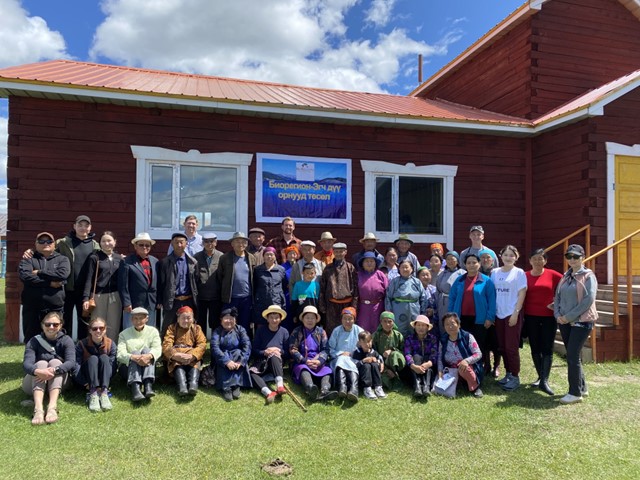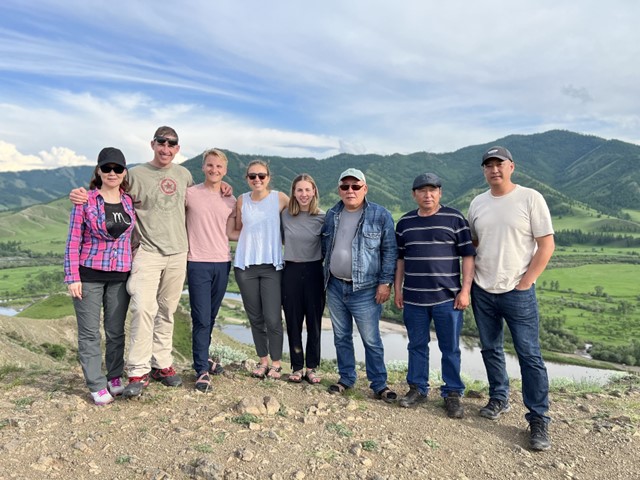This summer, a group of Montana WWAMI medical students embarked on an international health project 6,000 miles from home.
Montana WWAMI students MS2 Haley Rogers, MS2 Daniel Gray, MS4 Nathaniel Sisson, and MS4 Jenna Starke spent a month in Northern Mongolia, joined by peers from the Mongolian National University of Medical Sciences (MNUMS), a resident doctor, and BioRegions International employees.
Their united goal: To enhance patient care in rural communities.
Through the coordinated efforts of stakeholders, community organizations, and health practitioners in Mongolia and Montana, BioRegions International, a nonprofit with roots in Montana, works to bring people and organizations in Mongolia and the US together by encouraging mutual learning through projects that improve the environment, society, economy, and infrastructure.
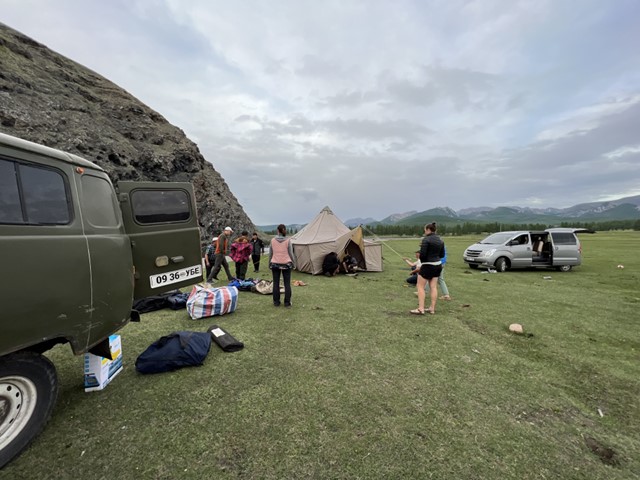
The students spent one week in Mongolia’s capital city, Ulaanbaatar, where they met their MNUMS colleagues. The team spent the following two weeks camping in the northern provinces of Mongolia.
Students engaged in several health projects over two weeks. The first is Project ECHO, a tele-education model which provides online continuing medical education opportunities for rural providers.
Our students helped connect specialists in the capital city of Ulaanbaatar with rural providers in Mongolia for weekly, case-based didactics over Zoom. With the ultimate goal of providing better care for patients with complex conditions, Project ECHO supports, empowers, and builds a supportive, collegial network completely online.
For 23 years, BioRegions has connected Montana WWAMI students with trips that exchange skills and knowledge in two globally significant landscapes – the greater Yellowstone ecosystem and Northern Mongolia.
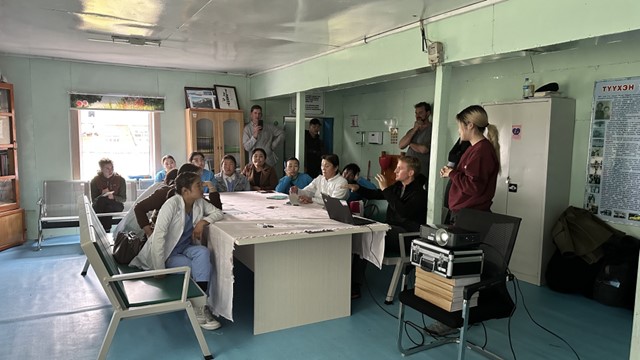
The team also worked closely with rural providers, conducting medical training for physicians and mid-level providers on stroke awareness and prevention, diabetes, hypertension, and wilderness first aid.
Ideas flowed between the providers and students on how to provide sustainable health care in rural settings, as Montana and Mongolia both have rural populations with limited access to specialty care.
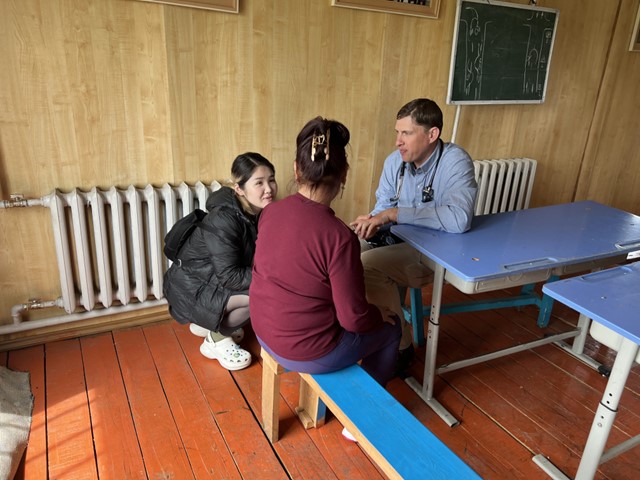
Lastly, students conducted wellness talks focusing on heart health for the elderly populations in the rural communities they visited.
“It was rewarding working with people of diverse talents where we all fostered an environment of collaboration and creativity. Our camaraderie made challenging tasks feel achievable,” Sisson said. “We formed professional and lifelong friendships with one another. To paraphrase our resident physician, “If laughter is the best medicine, then good company is the best prophylaxis!”
Although half a world apart, Montana and Mongolia share a commitment to uphold the health and well-being of their communities, and that starts with exposing the next generation of physicians to the rewards and challenges of rural healthcare.
